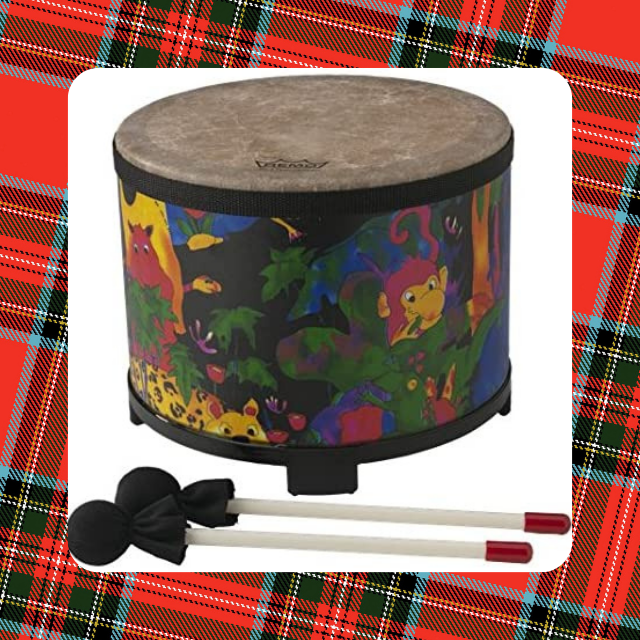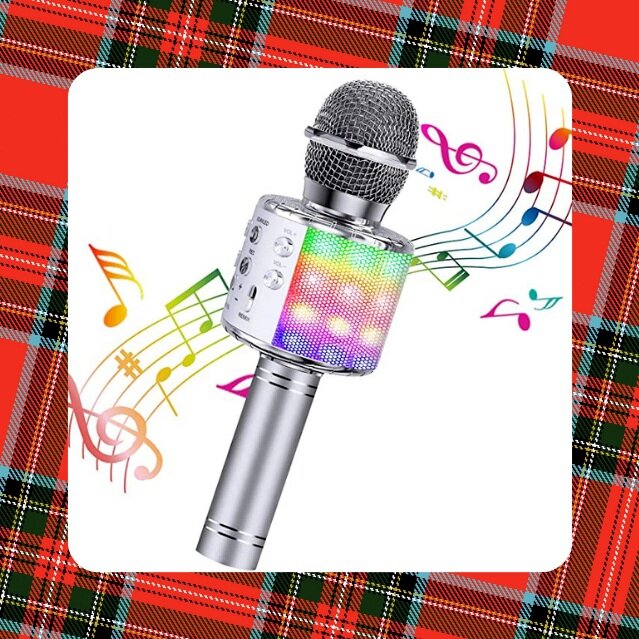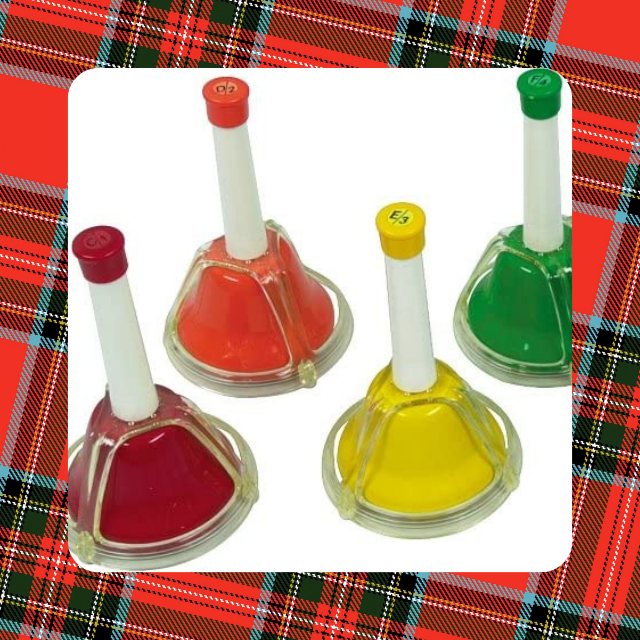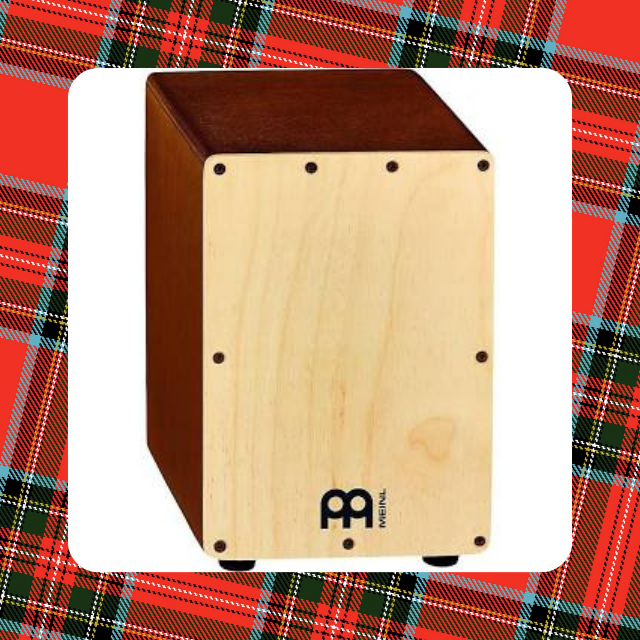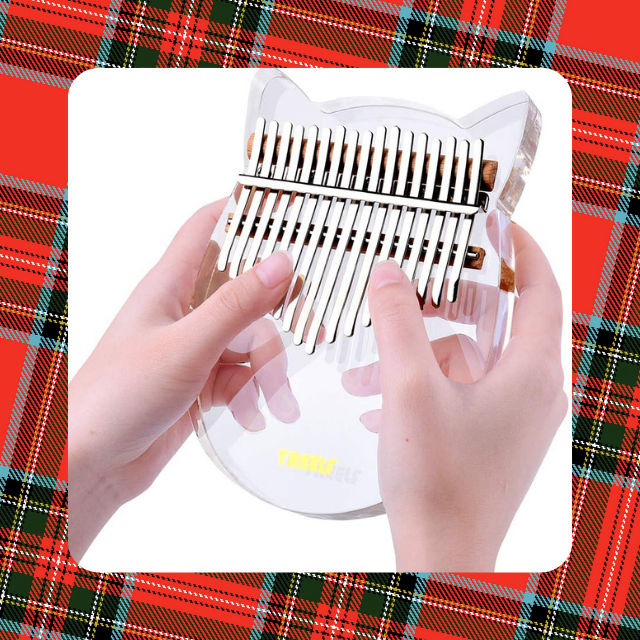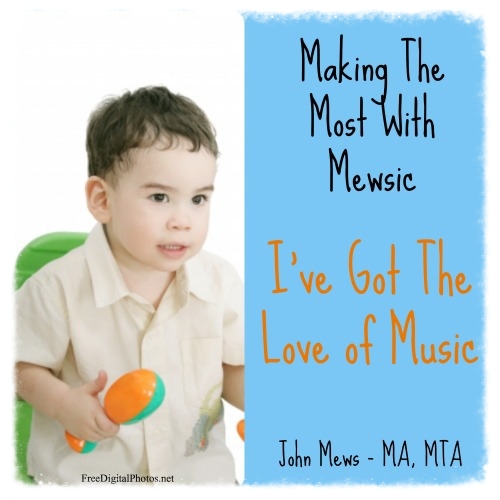
BLOGS
Educational blogs for parents and professionals
Harmonizing with Hope: How the Magic of Music Can Alleviate Fall Depression
Fall is one of the most beautiful seasons of the year, with its colorful leaves, crisp air and recreating many fall family favorite food recipes. I know mine is anything pumpkin! However, for many people, it is also a time of increased sadness, anxiety, and depression. Seasonal Affective Disorder (SAD) affects around 5% of the American population, with symptoms ranging from low mood to fatigue, irritability, and sleep problems. According to the American Psychiatric Association, “SAD typically lasts about 40% of the year and is more common among women than men.”
If you are feeling down during the fall season, one of the simplest and most effective ways to boost your mood is to listen to or play music. In this blog post, we will explore how music can help alleviate fall depression and provide tips on how to create the perfect fall playlist.
Music boosts your mood and releases endorphins
Listening to music has been linked to the release of endorphins and natural chemicals that trigger a positive feeling in the body. This is why music has such a powerful effect on our mood and emotions. By listening to uplifting and upbeat music, you can stimulate your brain to release endorphins, which can help counteract feelings of sadness, anxiety, stress and more. Playing an instrument can also have the same effect but you do not need to be a musician to benefit from its positive effects.
Music can reduce stress and anxiety
Music therapy has been shown to be an effective treatment for depression and anxiety. Studies have found that listening to calming music can help reduce stress hormone levels in the body, such as cortisol, which can contribute to feelings of anxiety, tension and stress. Creating a playlist of relaxing music on your iPhone or smart devices can help your body and mind to unwind and relax, reducing stress and anxiety levels. For more information on how music can help boost your mental health check out this article from the JED Foundation. Click Here for article
Music can evoke nostalgia and positive memories
Music has a powerful association with memories, and certain songs or genres can evoke positive memories and emotions. By listening to music that reminds you of happy times in your life, you can boost your mood and increase feelings of joy and happiness. From childhood classics to favorite college tunes, there is a wide range of music that can evoke a sense of nostalgia and positivity. I know when I listen to the Muppets theme song it immediately brings a smile to my face.
Music can improve your sleep quality
Sleep problems are a common symptom of depression and anxiety, and poor quality sleep can exacerbate these symptoms. Listening to calming music before bed has been shown to improve sleep quality and reduce sleeping problems such as insomnia. According to the Sleep Foundation, “Music has been shown to decrease levels of a stress hormone called cortisol. Music triggers the release of dopamine, which can boost good feelings at bedtime and may help manage pain”. To help your body and mind unwind before bed and to improve your sleep quality, pre-select some relaxing sounds or songs that you can put on a playlist and play while you start to settle in. Don’t forget to put your earbuds in as your calming music may be a distraction to your sleeping partner. Not everyone responds to music in the same way.
Music can provide a sense of connection and community
Music has the power to bring people together and create a sense of connection and community. By attending concerts, listening to live music, or even joining a choir, you can create a space where you feel connected to others through the shared experience of music. This social support can be an invaluable tool for combating feelings of loneliness and isolation, which are common in fall depression. If you are unable to find a community music group you can start to create musical moments with your family by creating a family dance party playlist, which is always fun and entertaining.
Music is an underrated but powerful tool for combating depression and improving mood and emotions for those struggling with mental health conditions and especially during the fall season changes. By creating a playlist of uplifting, calming, and nostalgic music, you can provide yourself with a simple but effective way to boost your mood, reduce stress and anxiety, improve your sleep quality, and create a sense of connection with others. So go ahead, create your ultimate fall playlist, and see how music can improve your mental health and wellbeing this season. Or if you are a musician, get out your guitar, sit at the piano and get a pot/spoon from the kitchen to create some rhythm and create a family band and rock it out through the changes of the fall.
Did we miss anything out? Let us know how music helps you get through the possible challenges of the Fall season. Also, we’d love to know some of your favorite calm songs that we can collect to create a playlist together.
For more information contact:
John Mews, LMFT, MT
CEO & Founder - Mewsic Moves
Licensed Marriage and Family Therapist
Music Therapist
Email: john@mewsicmoves.com
Phone: (818) 877-6797
Web: www.mewsicmoves.com
Top 11 Therapeutic Musical Toys for Children With Special Needs
After writing my first top therapeutic toy blog back in 2014 “TOP 10 MUSICAL TOYS FOR CHILDREN WITH AUTISM”, it has become the number one most read blog and resource in my entire list! So it's time for an update!
I get multiple emails and questions directly from parents and therapists all the time asking how they can use their instruments at home as a therapeutic tool or what instruments they should buy to help with their child/clients therapeutic goals.
This is the time of the year when many families and friends struggle with what toys or gifts to give to their little ones and what a better way than to get them something that is both fun and therapeutic.
These are the top 11 favorite instruments that I use in my sessions that continues to offer so much therapeutic value, fun, engagement and overall success in each of my clients therapy goals.
1 - Floor Drum
Drums vary as much in price as they do in shapes and sizes, sounds and color! I use many varieties of drums in my sessions but I want to share this specific remo drum with you. This drum is sturdy, strong and has great acoustic sounds and vibration. This drum can sit easily on the floor and be played individually or together with 2 or 3 friends as a gathering drum. Oh, and did I mention it's affordable?!
Drums can help support:
Impulse Control
Eye-Hand Coordination
Turn-Taking
Focus and Attention
Auditory Skills
Regulation Skills
In a group it can help with social-emotional goals, non-verbal social cues and skill development
For more details click here
2 - Karaoke Microphone
Microphones can be so much fun to work on multiple goals from speech and language to increasing self-esteem. I prefer using microphones where you can manipulate the sounds to keep my clients engaged in the music process, to keep it fun and therefore better engagement and participation in achieving the therapeutic goals.
Microphones can help support:
Speech and Communication Skills
Self-Esteem
Social-Emotional Development
Creative Expression
Social Cues and Skills
For more details click here
3 - Shakers
Shakers are a staple in my music therapy instrument options. Shakers are always a fun welcome to any music activity in my clients sessions. Shakers and maracas are interchangeable in most of my sessions.
Shakers can help support:
Social Skill Development
Gross and Fine Motor Skills
Eye-Hand Coordination
Educational Goals - colors, counting, etc.
For more details click here
4 - Lollipop Drum
These drums are a favorite choice for many of my younger clients. I choose the lollipop drums as they are very light weight and have a handle to help guide or sustain more controlled movements in my music therapy sessions.
The Lollipop drum can help support:
Eye-Hand Coordination
Gross Motor Skills
Visual Perception and Eye Tracking
Regulation Skills
Social Skills and Cues
Joint Attention and Play
For more details click here
5 - Bells
I had an intern many years ago that introduced these bells to me and I have used them ever since. Children love these bells as they are colorful and you can play them both by ringing them or tapping the top of the handle.
Bells can help support:
Early Reading Skill Development
Educational Goals - colors, counting and letter recognition
Early Music Education
Social Skills
Focus and Attention
For more details click here
6 - Steel Tongue Drum “Happy Drum”
This is a new addition to my instrument collection and a favorite by clients of all ages. This drum sits on your lap and is easy to play as the tones are in a tonal scale that is always in harmony as you play.
Tongue drums can help support:
Mindfulness
Meditation
Regulation skills
Social - Emotional skills
Eye-Hand coordination
Self-Expression
For more details click here
7 - Cajon
The cajon is also a new addition to my musical toolbox. This is such a fun instrument for all ages; children love the idea of sitting on an instrument and being able to play it in a variety of ways and feeling the rhythmic vibrations throughout their body. The cajon is a beautiful strong instrument and comes in various sizes. I prefer the larger sizes that can comfortably allow both my older adult clients as well as my younger clients to safely sit on it and play.
Cajon’s can help support:
Self-Expression
Eye-Hand Coordination
Social Cues and Skills
Self Regulation
Gross and Fine Motor Skills
For more details click here
8 - Kalimba
The kalimba is also known as a marimba and used in many African musical cultures creating a beautiful melody by plucking the metal keys with your thumbs and fingers. This instrument is very easy to play and has beautiful relaxing tones.
Kalimba can help support:
Fine Motor Development
Self-Expression
Meditation and Mindfulness
Emotional and Self-Regulation
Eye-Hand Coordination
For more details click here
9 - Xylophone
The xylophone is a staple instrument in my music therapy practice for children especially and adults alike. The xylophone is a great choice as it is transportable, affordable, mimics the notes of a piano, and versatile. Xylophones also come in a variety of sizes, materials and colors. For younger children I like to buy those with bright colors to make it more fun, but the one I’m choosing this year is a “collapsable” xylophone which makes for easy carrying and storing. I also tend to put colored stars on the xylophone to help with early music education skills.
Xylophones can help support:
Early Music Education
Eye-Hand Coordination
Gross Motor Skills
Social Cues and Skills
Impulse Control
Creative Expression
Focus and Attention
Bi-lateral Movements
For more details click here
10 - Ocean Drum
The ocean drum continues to be a favorite choice for many of my younger clients. Children often love to have the control of creating their own dynamics from loud to soft wave like sounds as well as enjoying the visuals of the beads moving about in the circular drum.
Ocean drums can help support:
Focus and Concentration
Gross Motor Skills
Mindfulness and Meditation
Self-Regulation
Impulse Control
Social Cues and Skills Within Groups
For more details click here
11 - Kazoo
The kazoo is such a fun and inexpensive instrument and therapeutic tool! Kazoo’s come in many different colors and materials. For those of you who have played a kazoo you are aware that it doesn’t work by just blowing into the instrument. Your vocal cords are required to make a vibration and buzzing type of sound which is a rudimentary skill in initial speech and language goals. I use kazoo’s with many young children that are working on their initial speech goals through helping produce breath support and to engage the vocal cords into initial vocalizations and furthermore speech development.
Kazoo’s help support:
Breath Control
Speech and Communication goals
Speech production
Self-Regulation
Creative Self-Expression
For more details click here
I hope you find these 11 instruments helpful in bringing some of the therapeutic benefits of music with your children whether in your home or office. Please feel free to reach out to me if you have any questions about the appropriateness of a particular instrument for your child or client. If you are not working with a music therapist already, in most cases I can refer you to a qualified therapist in your area that can support your child’s developments through music therapy.
If you have any questions about any instruments that you currently have and how they can be used for therapeutic purposes please don’t hesitate to reach out to me as I’d love to support you and your child.
John Mews, BMT, NMT, AMFT
Founder & Owner - Mewsic Moves
email: john@mewsicmoves.com
Happy Holidays Everyone! Give the gift of music this year.
Let’s Be Social:
Please like, share and or leave your comments below as we love to hear form you!
Music is a Companion: Music Therapy and Mental Health Awareness
In my 15 years of work as a music therapist I have supported many clients who struggle on a daily basis with mental health challenges depression and anxiety to mention a few. Many of clients throughout Los Angeles share the same story of feeling isolated, alone and like no one understands. Others also share the immense levels of shame and stigma that accompany these psychological mental health diagnoses. In my sessions I open up a safe space where each can share their experiences and stories of these intense feelings of embarrassment, shame and even stigmas that they face (many by their own family members!).
Just this past week in a music therapy mental health support group I encouraged clients to create a list of musical artists that they were aware of that lives with mental health condition(s) and shares it openly and publicly. This sparked a huge discussion around the topic and led us to share songs that reflected mental health awareness tat were either written or performed by these specific individual artists.
Musical artists that came to mind for most of the group members were artists such as: Lady Gaga, Demi Lovato, Eminem, Macklemore, Pink, and Kesha just to name a few. We then shared specific songs and discussed the artists realness about their mental health struggles in their songs and lyrics. Many clients shared, not only did they connect to the artists and their lyrics but that the music was also a “companion” for them when they felt like “no one was around” or “like no one understood”. One client shared,
“when I was all alone and depressed I would listen to Kesha and felt like she was there with me; through her lyrics I knew she understood and therefore helped me with my loneliness and knowing others do understand”.
May being mental health awareness month, I am grateful to so many music artists (as well as other public figures) that step into vulnerability and share the truth about their own mental health challenges. This place of vulnerability and sharing as Brene Brown speaks of in all her social platforms and books is pure “courage” and helping others to connect and not feel alone in their time of hardship.
If you feel alone, or like no one else understands please find solace in some others stories and music that many artists have shared. And furthermore, allow music to be that therapy in your life during during this difficult time. Find below a short list of songs that clients have shared this week in honor of mental health awareness and how music and many artists are shedding light, awareness and education.
If you are experiencing and forms of mental health challenges please do not hesitate to reach out to local therapists and or treatment centers, we are here for you. This is not a time to give into shame or embarrassment as majority of people struggle on a daily basis with mental health challenges and you do not need to do this alone. "You are not alone”.
Some songs clients chose that reflect Mental Health Awareness:
Glorious - Macklemore
Sill Feel - Half Alive
I Always Wanna Die (Sometimes) - The 1975
Everybody’s Lonely - Jukebox the Ghost
Scars to Your Beautiful - Alessia Cara
Rainbow - Kesha
Here I Am - Leona Lewis
In My Blood - Shawn Mendes
Shake it Out - Florence and the Machine
Everybody Hurts - REM
Throughout mental health awareness month we will be posting a song each day on our facebook page that reflects mental health awareness in music. Let music be your therapy, guide and your companion. Please feel free to share some of your songs as well in the comments below or on our social media platforms. We love to share and connect through music.
Let’s Be Social:
Banner Photo by OC Gonzalez on Unsplash
Top 5 Qualities to Look For in a Music Therapist
I recently read a blog on the top 5 qualities to look for in an individual therapist or family therapist. It got me thinking. What do parents or other professionals look for in a music therapist? What are the key qualities to look for in a music therapist?
Here are the qualities I have come up with for top 5 qualities to look for in a music therapist working with children.
1. Team Player
It is very important to find a music therapist who works well in a multi-disciplinary team. When I first began my practice I was so "green" and I consulted with other therapists such as Occupational, Physical and Speech Therapists. I learned so much from them and more over, I learned how to work together to make sure the best success was achieved for the child. Make sure that your music therapists has a wealth of consulting and works well with others in the child's team support system.
2. Creative and Fun
It is important for a music therapist to be creative. It is often imperative that a music therapist be able to make up songs and activities "on-the-spot" to match your child to where they're at. A music therapist often needs to adapt songs and activities to engage or motivate a child in the desired activity to achieve various goals.
3. Adaptable & Knowledgable
Just because a music therapist has a bachelor or masters degree it doesn't end there. Music therapists are required to follow up on continuing education and researching the latests educational resources in their specialized client population.
4. Compassionate and Patient
Working with children with special needs, especially autism can be most challenging at times. It is very important that the music therapist you are seeking to work with your child has a deep desire and compassion to work with children with special needs. You have every right to ask your therapist what inspired them to choose to work with children with autism. It is also crucial that music therapists working with children with autism have a great deal and gift of patience. Considering children with autism function and experience the world in different ways than we do, it is crucial that the music therapist you choose has a great deal of patience in waiting and understanding how your child acts or reacts in certain situations.
5. Problem-Solver
Working with children with special needs considers a great deal of problems-solving skills. It's imperative that the music therapist that you choose can "think on their feet" and come up with a solution that your child is dealing with through a musical activity or therapeutic intervention. You can simply ask your therapist in an interview, "what is the most challenging client you have worked with and how did you problem-solve to come up with a solution?"
I hope you find this list helpful in choosing the music therapist that is the best fit for you and your child's needs. For a list of music therapist in your area you can contact your local music therapy association or the American Music Therapy Association website.
If you have other qualities that you think are important I would love to hear from you, please write them in the comment section below.
Let's Be Social
Please share, pin, like and leave your comments below as I love to hear from you!
Mewsic Moves Wins an Award!
I am so thrilled to announce that I have received the “Top Music Therapy Writer” award from Autism Parenting Magazine for 2014! This is a terrific magazine that provides education and support to families of children on the spectrum. The Autism Parenting Magazine was also proud recipients of the 2014 Gold Award for Online Resources (websites, eMagazines and blogs) in the category of Family/Parenting from the Mom's Choice Awards®.
Here is a list of some of the articles I contributed to the Autism Parenting Magazine:
I encourage you to check out this excellent magazine! Also, look for more articles from me this year. If you have questions or are interested in learning more about music therapy, please reach out to me. Your question might even inspire me to write my next article!
Click on the picture to the right to subscribe to the Autism Parenting Magazine.
Musically,
John Mews, BMT, MA, MFTI
john@mewsicmoves.com
www.mewsicmoves.com
You can also check out the Autism Parenting Magazine by CLICKING HERE
Check out my other blogs below
Let's be social:
Please share, pin, like and leave your comments below as I love to hear from you!
A Music Therapists Adaptation of "Leaves are Falling Down"
A music therapist will often be called upon to come up with a song in the spur of the moment to facilitate a positive therapeutic intervention. Over the years, I’ve built up quite a collection of these “on-the-spot” creations to help children with special needs relax and learn special skills. It occurred to me a while back that other music therapists might find these songs useful, so over the past year I recorded some and wrote out the musical score.
Jennifer Hezoucky, MT-BC, Jacobsburg, OH.
I recently I received a very touching email and newsletter from Jennifer, a music therapist in Jacobsburg, Ohio who bought my fall song, “Leaves are falling down.” She shared with me a beautiful video of how she used the song with young pre-school children. Here is what she wrote:
What's Happening this Fall!
“At Creative Learning Daycare my preschool music class has been singing songs about fall. What a great way to incorporate learning when you have a seasonal theme! I love searching for new songs to use with my groups and I came across a song written by John Mews who is a music therapist and owner of Mewsic Moves. His song is called "Leaves are Falling Down.” There are many ways to use this song but I chose to use my new NSL 30" drum and scarves. Instead of using the stand that the drum came with I chose to set it on the floor so that the children can sit around the drum and experience playing one instrument as a group. I placed colored scarves in the middle of the drum (preferably fall colors) and held up each scarf as we sang what color was picked up. This was a great activity to introduce group drumming and color recognition.”
Click on the video to the right to watch how Jennifer adapted this song on the gathering drums with pre-school aged children.
Watching her video with those beautiful children really warmed my heart. Seeing the wonderfully creative way Jennifer used my song to create that moment made me feel very glad that I’d recorded it.
I love your stories, and am so grateful when you share them with me! Thank you Jennifer for your amazing work and for sharing this beautiful video.
To view Jennifer’s webpage go to: http://lifesongtherapy.com
Now that you get a sense of how this song can be used in creative ways I would like to offer each reader a discount on this song!
Now you can get a 50% discount of “Leaves are Falling Down” through the end of November. (Offer expires November 30th)
Click on the "buy now!" button to the right and enter this code at checkout: LEAVES
For FREE songs and tips on how to support children with special needs through music Click Here!
Let's Stay in Touch!
Please share, pin, like and leave your comments below as I love to hear from you!
5 Reasons Why Music Therapy is Effective For Children With Autism
March is music therapy awareness month and I would like to highlight some of the reasons why music therapy is effective especially for children with autism.
1. It is multi-sensory
Music is appealing to most of our senses, which makes music therapy unique in that we can work on multi goals simultaneously. For example, a drumming exercise helps with eye-hand coordination, eye contact, motor and impulse control.
2. It is fun, safe and engaging
Music therapy provides a fun, safe and engaging environment for children with autism to explore and play. It also provides many opportunities for successful outcomes which helps to builds self-esteem and increases motivation.
3. It is structured and predictable
Music therapy can provide a structured and safe environment for children with autism to explore. Music that has a lot of repetition is predictable, which makes learning much easier for children with autism. The musical repetition helps them to self-regulate, because they know what is coming up next.
4. It is processed in all areas of the brain
Recent research shows that when we listen to music, all areas of the brain are lit up. Music therapists have known this for a long time, but now have the science to back it up. Music can help with speech and communication challenges, for social connection, for emotional regulation, motor control, and many other things.
5. It facilitates communication
Perhaps you’ve heard that “music is the universal language.” Taking this literally, we can use music in therapy to increase non-verbal communication through improvisation. Children with autism connect to music to express their feelings, emotions, and life stories. The interplay between the music therapist and child with autism is done in a non-threatening way, opening up many channels of communication.
Please feel free to share and comment on how you find music therapy to be effective for children with autism.
#mtawareness



